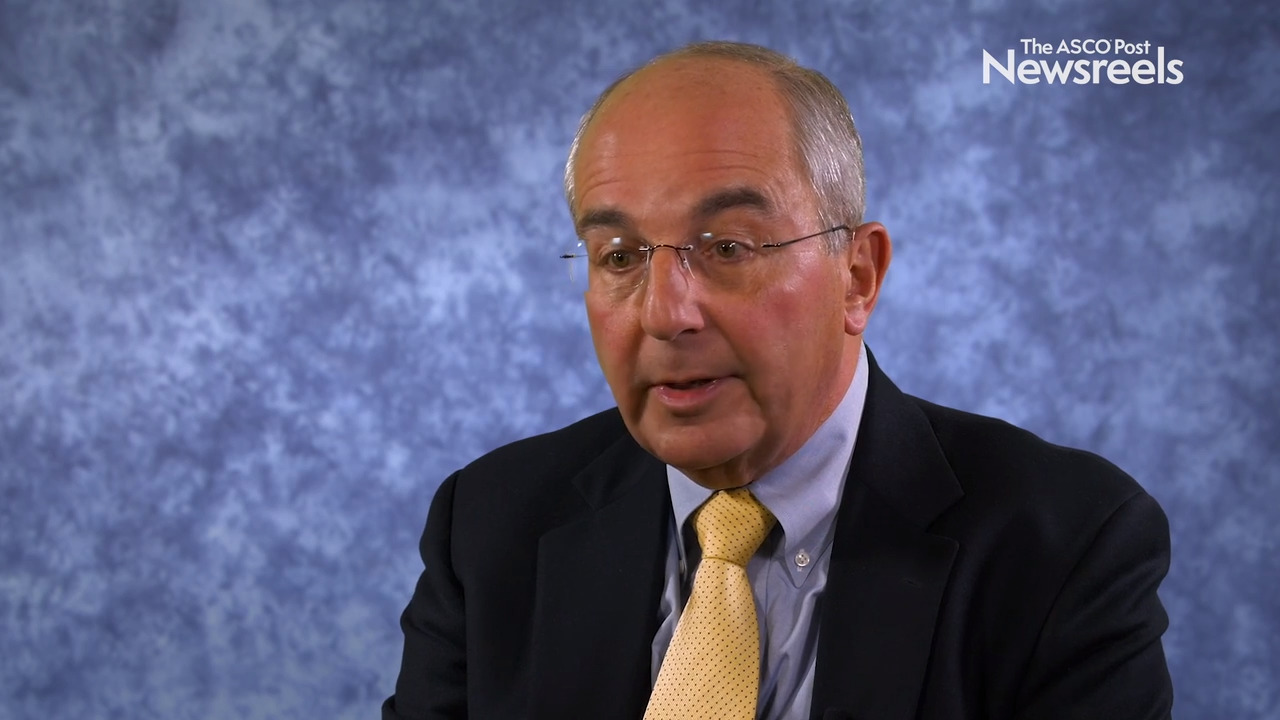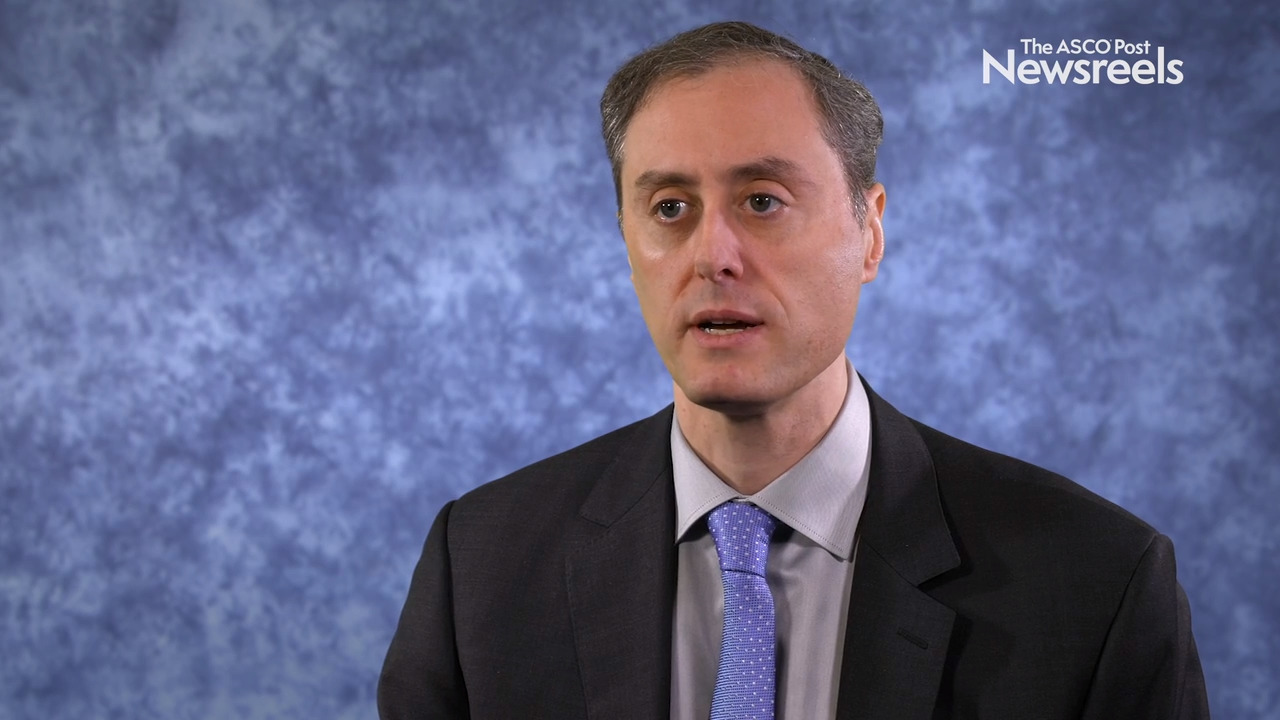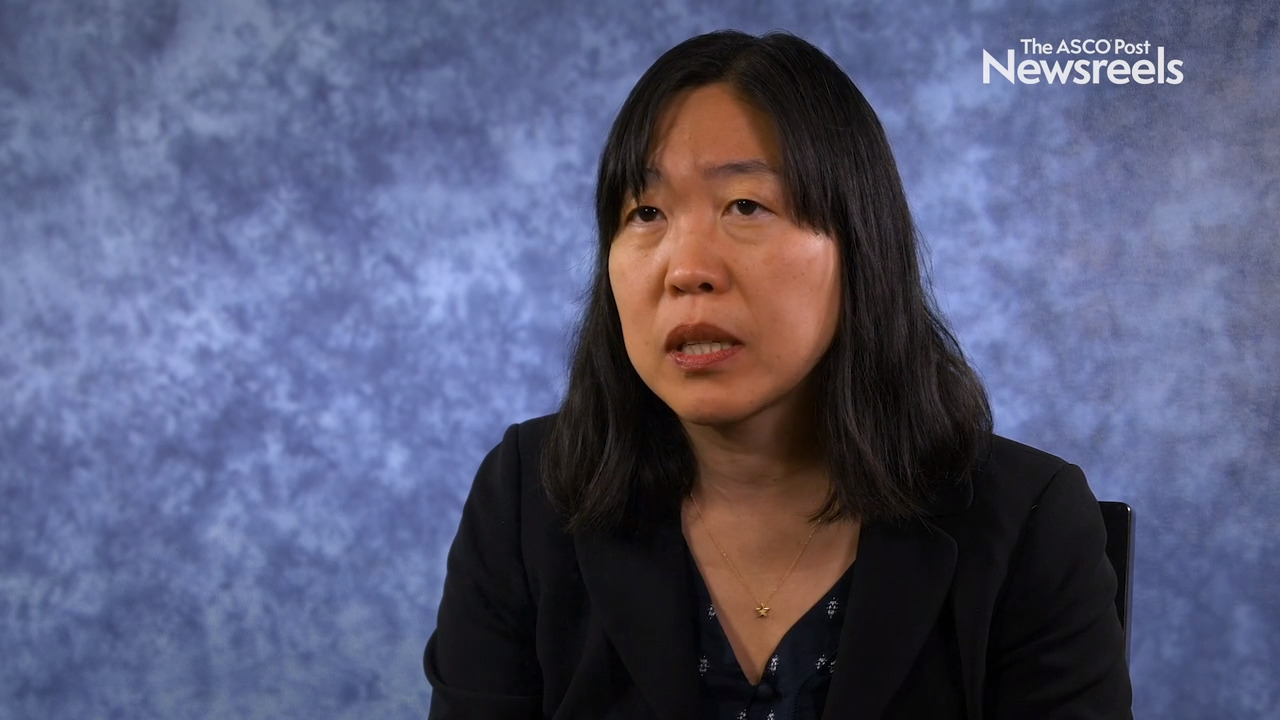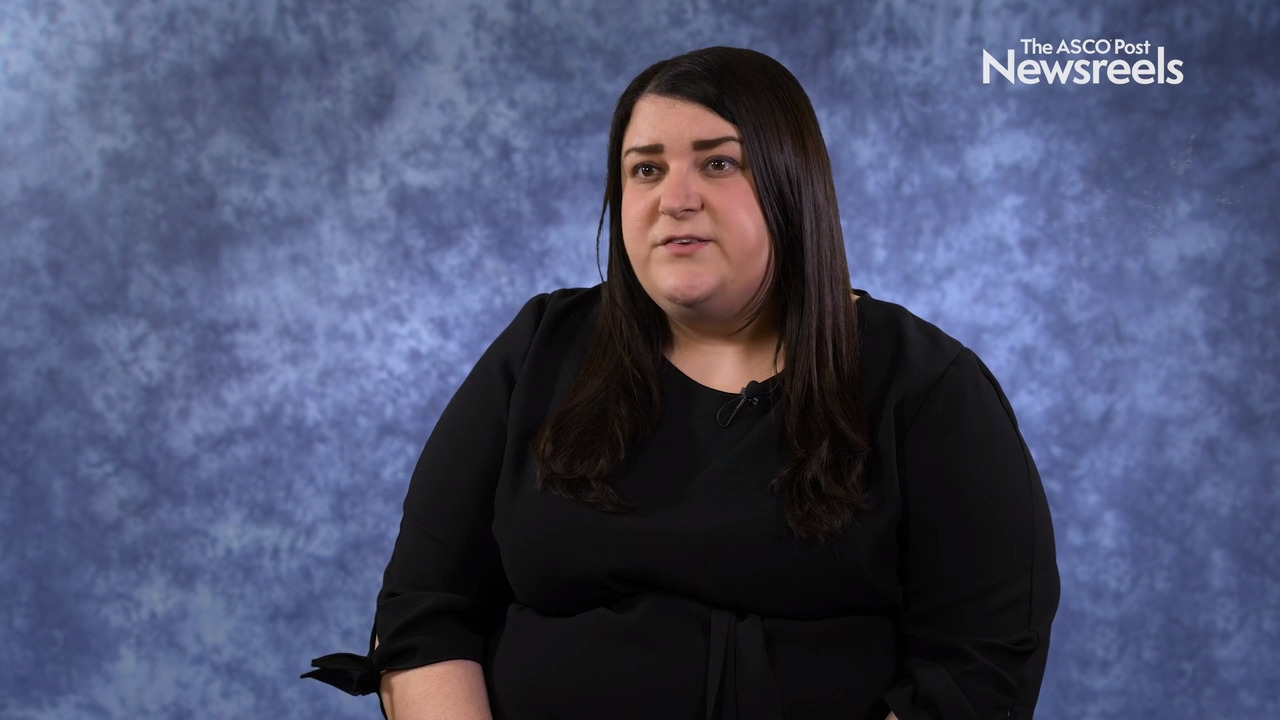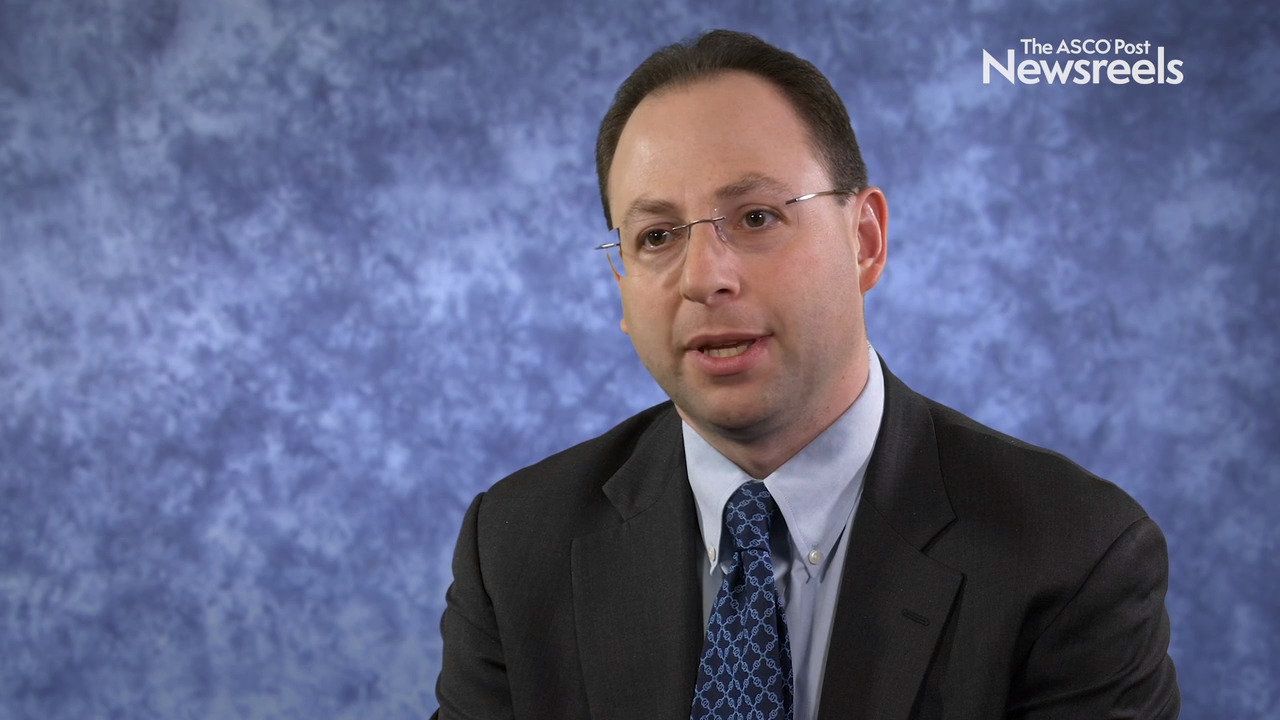Francis P. Worden, MD, on the Role of Induction Chemotherapy in Laryngeal Preservation
2020 Multidisciplinary Head and Neck Cancers Symposium
Francis P. Worden, MD, of the University of Michigan Health System Comprehensive Cancer Center, explores the use of novel biomarkers that may help predict response to induction chemotherapy and survival in patients with locally advanced laryngeal cancer.
The ASCO Post Staff
David Adelstein, MD, of the Cleveland Clinic, discusses the hypothesis that treatment can be de-intensified in patients with HPV-associated oropharyngeal cancer and a good prognosis.
The ASCO Post Staff
Jared Weiss, MD, of the University of North Carolina, Chapel Hill, discusses outcomes for patients with stage III or IV disease who are ineligible for the standard treatment of cisplatin plus radiotherapy. His data suggest that treatment with pembrolizumab/radiotherapy instead is tolerable, with improvements seen in progression-free and overall survival (Abstract LBA1).
The ASCO Post Staff
Sue Sun Yom, MD, PhD, of the University of California, San Francisco, talks about the variety of evolving ways to deintensify radiation therapy, the critical need to counsel patients on the risks and benefits, and the ethical importance of respecting patient preferences in choosing their cancer therapies.
The ASCO Post Staff
Assuntina G. Sacco, MD, of the University of California, San Diego, discusses the results of a small phase II study, which suggest that pembrolizumab plus cetuximab may show activity for platinum-refractory/-ineligible patients with recurrent or metastatic head and neck squamous cell carcinoma (Abstract 15).
The ASCO Post Staff
Jonathan D. Schoenfeld, MD, MPH, of Dana-Farber Cancer Institute and Brigham and Women’s Hospital, discusses phase II study results with the PD-1 inhibitor nivolumab or the combination of PD-1/CTLA-4 inhibition with nivolumab/ipilimumab in patients with newly diagnosed untreated oral cavity cancer (Abstract 1).
